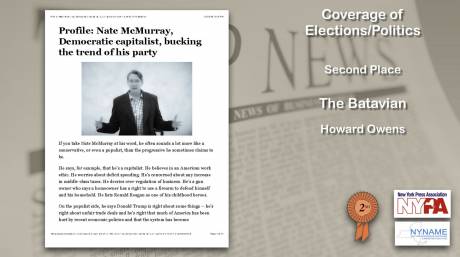Collins trying again with 9-1-1 legislation
Press release:
Congressman Chris Collins (NY-27) and Congresswoman Anna G. Eshoo (CA-18) reintroduced legislation that prevents states from diverting fees collected from consumers on their phone bills, which are meant to be used to improve 9-1-1 emergency communications systems. The Federal Communications Commission (FCC) has found that New York diverts at least 41 percent of 9-1-1 fees that are collected for non-public safety related purposes. Congresswoman Anna G. Eshoo (CA-18) co-lead on the bill has also seen 9-1-1 fee diversion in California.
“It is completely unacceptable that states, like New York, continue to rob our emergency response systems of important and necessary resources by diverting funds,” Collins said. “Diverting these fees puts lives in danger, especially in rural areas. I thank Congresswoman Eshoo for her support once again of this legislation and her commitment to making sure all communities across the nation can achieve the highest level of safety.”
“State and local governments charge citizens 9-1-1 fees on their phone bills to support emergency services, but some states divert this revenue to other government projects unrelated to improving public safety,” Eshoo said. “In fact, nearly $285 million in 9-1-1 fees collected by states were diverted for non-9-1-1 purposes in 2017, taking away valuable resources from already strapped public safety budgets. This bipartisan legislation directs the FCC to crack down on this practice to ensure taxpayer dollars collected for emergency services are actually invested in emergency services.”
Passage of this bill will direct the FCC, in consultation with public safety organizations, and state, local and tribal governments, to determine the appropriate use of funds collected from consumers. Currently, states are able to set their own definition of what is a covered cost for 9-1-1 fees, which has allowed them to divert fees.
Last April, Collins toured the Niagara County 9-1-1 call center with FCC Commissioner Mike O’Rielly where they called on the state of New York to stop diverting fees. Unfortunately, fee diversion continues in New York, California and other states around the country.




